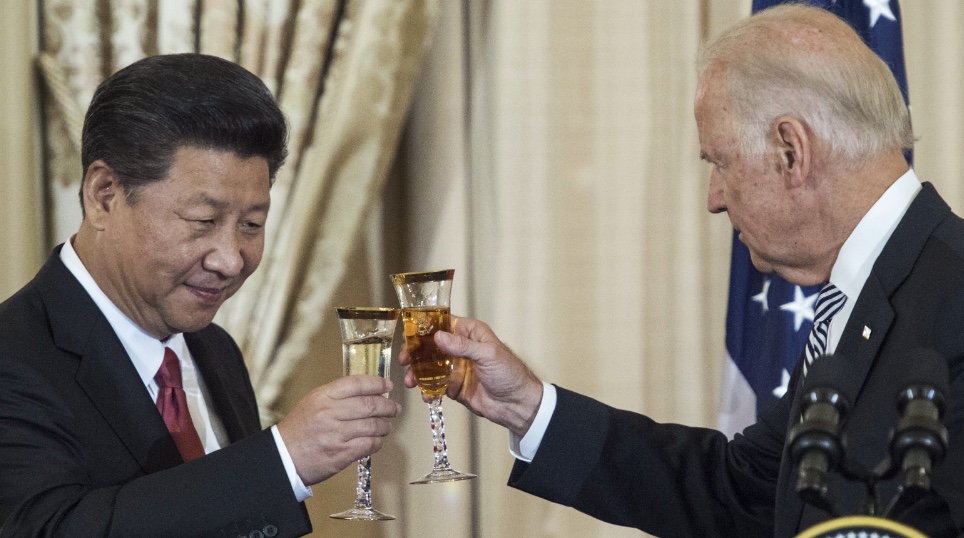"Planet Earth is large enough for the two countries to succeed“Xi told Biden. Biden said the United States and China must ensure that competition between each other “it doesn't lead to a conflict” and manage their relationships”responsibly".
Editorial
Biden and Xi have met seven times (mostly remotely). After the tensions over the visit of the former speaker of the room, Nancy Pelosi in Taiwan the situation has now changed because China sees its economy no longer as effervescent as it once was compared to the American one which, however, based on the data, enjoys excellent health. China also fears Biden's foreign policy, which has relaunched his country on the world stage by trying to set insurmountable boundaries in the hottest areas of the globe, with the Indo-Pacific in the lead.
In particular, he encouraged and reinvigorated relations in the Pacific with Australia, Japan, the Philippines and South Korea as well as Taiwan, created 14 million jobs in three years, applied new infrastructure policies and promoted a plan to control exports hi-tech to prevent Beijing from developing new capabilities in the military field. The 50 billion dollars invested to conquer important market shares in the latest generation semiconductors did not go unnoticed either.
China, according to growth data drawn up by the International Monetary Fund, is, however, below 4 percent and never from 1991 to 2019 had it been lower than 5,6% with a peak in 2007 of a GDP that soared to over 14,23 percent.
The meeting between Biden and Xi
Yesterday Biden welcomed Chinese President Xi at a location 40 km south of San Francisco, away from prying eyes and above all from any protesters. The two leaders, at least apparently, have tried to resolve the differences that have increased tension between the two countries in recent months, including spy balloons and "aggressive" military exercises near the island of Taiwan.
In the face-to-face meeting that lasted about four hours, Xi wanted to clarify that "China has no plan to replace the United States, and the US should have no plan to suppress China: the two countries should promote mutually beneficial cooperation.".
Taiwan. On Taiwan, Xi said that reunification "it is an unstoppable process” and represents “the most important and sensitive issue in relations between China and the United States." “The United States should take concrete actions to honor its commitment not to support Taiwan's independence, stop arming Taiwan, and support the peaceful reunification of China“. Biden, however, said that the US intends to maintain peace, stability and status quo in Taiwan, asking Xi to respect the ongoing electoral process.
Sanctions. On sanctions, Xi highlighted how these "on export control, investment screening and unilateral sanctions seriously harm China's legitimate interests“. The Chinese president then explained that he believes "It is important that the US takes China's concerns seriously and takes tangible steps to lift unilateral sanctions to provide a fair, just and non-discriminatory environment for Chinese businesses.“. China's development and growth,"guided by its intrinsic logic, they will not be stopped by external forces”, Xi added.
Weather. Sul climate The US and China have signed a joint declaration in which they pledge to work together against “one of the greatest challenges of our time”, intensifying cooperation on methane and supporting global efforts to triple renewable energy by 2030. The document is silent on the use of coal and the future of fossil energy but in any case this is a positive signal, also in view of the COP28 is imminent.
Fentanyl. On the fight against the use of Fentanyl, a US administration official, quoted by the American media, Washington and Beijing have reached an agreement with which China will launch a crackdown on the production and export of the chemical precursors of Fentanyl, the opioid low-cost synthetic that claims tens of thousands of victims every year in the USA. In exchange, Washington could lift sanctions against the forensic science institute, accused of collaborating in the repression of Uighurs in Xinjiang, even if the White House has assured that human rights in China, including the repression of the Uighurs themselves, are among the priorities of Biden.
“Hot” communication line. It has finally been restored “red” communication line among the military leaders. Line suspended by Beijing after the controversial visit of the then speaker Nancy Pelosi to Taiwan in 2022.”We are back to direct, open and clear communication on a one-on-one basis“Biden said. Additionally, Biden said he and Xi agreed on high-level communications. “He and I have agreed that each of us can answer the phone directly and we will be heard immediately."
Artificial intelligence. There is also a joint commitment to limit the use ofartificial intelligence in nuclear weapons. The two leaders also agreed to bring together experts to discuss the risks of AI
Human rights. The White House said Biden then raised issues of concern to Washington, including detained US citizens, human rights in Xinjiang, Tibet and Hong Kong and Beijing's aggressive activities in the South China Sea. In this regard Biden said: “We talked, we were frank with each other so that there are no misunderstandings".
Iran. Biden asked Xi to use his influence with Iran to urge Tehran not to launch proxy attacks against US targets in the Middle East.
After the meeting, Biden welcomed world leaders to theAPEC in San Francisco, where he said Xi viewed the visit as a homecoming, given the large Chinese population in the city hosting the summit.
Subscribe to our newsletter!
